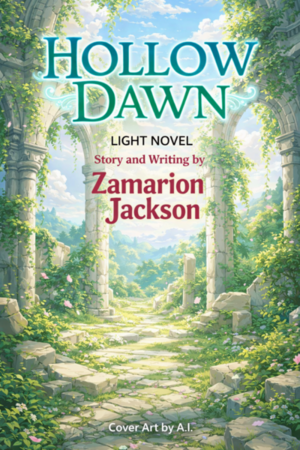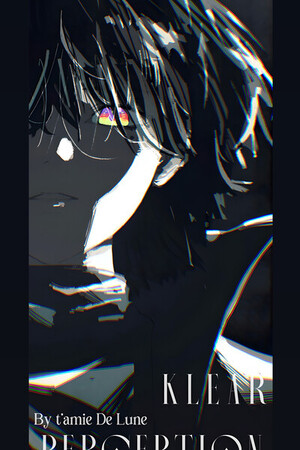Chapter 11:
Do Vending Machines Dream of Synthetic Cola? (Part I)
The Young Archivist's Records
A year had passed since I first visited Archon Indigo’s estate.
The human noblewoman in the painting, as I thought, was indeed brought to Bibliotheca, and served as an Archivist. In many ways, she was my predecessor as the representative on earth. Her elderly and frail body was reinforced by the nanomachines, which allowed her to live for centuries and even took back the youth she lost on Earth. But that was only on the surface; she eventually succumbed to old age around 50 years before I arrived.
Since then, the elderly Archon Indigo’s health deteriorated, and he was no longer able to go on long expeditions. He went into semi-retirement, and created the Indigo Farm in memory of the princess. The odd colours of the estate were apparently his taste. But he himself has little time left, and perhaps it was his will to die on his estate — which happened to be his old ship repurposed.
Even Kexteran technology, as magical as it seemed, could not alter the basic nature of life.
…The princess sure lived a long, interesting, and perhaps tragic life. If she was still alive, I’d like to meet her at least once. Maybe then we could become friends, and exchange our stories over a bottle of cola. Or a pint of beer. Or maybe something more mild, like a can of coffee. The princess might be surprised how good canned tea had gotten, too.
Why am I mentioning those drinks?
Because on that day, one year after I first heard of Archon Indigo’s story, I found myself in front of a large, white metal box — an Earth-style vending machine, selling those exact drinks.
——————————
“Greetings. Please choose your drink.” A white, metal box with familiar markings announced.
“…”
“Greetings. Please choose your drink.” The white metal box with a glass panel repeated itself.
“…”
The said box was certainly unusual. Scans indicated that it wasn’t made of nano-cermet, like everything else around was. Instead, it appeared to be made of aluminium painted white. Behind its transparent glass panel were its goods, each labelled with a number for selection using the numpad to the right. Some markings in English provided detailed instructions, and there was a coin slot to take the payment; no electronic payment seemed to be possible.
It was of typical construction for a vending machine made in the early 21st Century on Earth.
The problem was, of course, we were deep in the Bibliotheca, and almost two hundred years after when this machine was supposed to be made. It was possible someone brought it from Earth in the past and left it here, but its conditions were too pristine for that.
“Greetings. Please. Choose. Your. Drink.” The white metal box repeated itself for the third time, getting more and more aggressive each time.
Then of course, there was the problem of its apparent sentience.
“Paddington… What do you think? This thing is way too suspicious…”
Paddington the giant teddy bear nodded excitedly, her backpack and hat shaking with its head. The backpack and hat were gifts from Archon Indigo: the backpack was an anti-gravity unit, while the hat was in fact a basic AI compute unit. With those two upgrades, Paddington now followed me when I repaired the city, even though I no longer need to ride on her to move around. Her increased intelligence also gave her some autonomy to act independent from me, which had helped me on many missions.
Among her party tricks, she was incredibly apt at detecting abnormal technologies, let it be defective drones, rampaging AI, or sometimes, artefacts — powerful items made with forgotten technologies in the past. If Paddington also thought it was suspicious, then it could be some sort of artefact. Then I guess there was only one way to find out.
By committing counterfeiting, that was. Coins were out of circulation on Earth since a century ago, after all, and there was no reason why I would have them. The poor little machine would have to put up with a fake, unfortunately.
I pressed the surrounding wall, and proceeded to pinch it. The nano-cermet wall deformed like soft clay, and I carefully pulled a part out of it. The wall quickly flattened itself, and the “clay” I pulled out reshaped itself into coins, with a certain British monarch’s head on it. Pound coins from the early 21st Century was born.
I inserted a coin into the machine and started browsing the selection. The anachronistic and mysterious vending machine was well stocked: beers, cookies, chocolates, teas and coffees; all staples from one and a half century ago. For someone not well-versed in food history, I was at a loss.
…to begin with, what if the machine actually gave me something dated one and a half century ago?
“Paddington?” The giant teddy bear dragged my cape, and pointed at a certain drink. That drink is OK… is what she wanted to say.
I looked at her suggestion. It was a bottle of cola in its signature red-capped bottle. I did hear the recipe had not changed for two hundred years, but…
“Paddington, I know what you are thinking, but no. A flat cola is the worst.” If this vending machine was actually from Earth, then I would be drinking 150-year old flat cola…
The teddy bear did not let go of my cape. I never knew a machine could be so stubborn.
“…Fine.” I typed in the code for the cola, and a plastic bottle rolled out of the machine.
“Thanks for your patronage.” The vending machine announced. That was creepy in itself, but scans indicated the contents were non-toxic to humans, so I twisted open the cap.
…Disregarding the fact that the “Best before” date was in a date in 2020.
Surprisingly, some gas came out of the bottle; how was it not flat after more than 160 years?
“This is getting fishier and fishier…” After steeling my resolve, I took a sip.
It was the same. Like Reina’s and Archon Indigo’s tea before, the cola tasted as it would on Earth. The fizzling sensation, the slight bitterness, the taste of sweet caramel — distinct from the taste of the cheap imitation that is D*et Cola — it was the same. Same as that person’s favourite drink.
A certain someone’s face began to appear in my mind. Someone I treasured. Someone with a sunny smile, someone always with a can of cola in his hand, someone who brightened my world—
Paddington suddenly poked me.
“Ah, sorry, Paddington. It’s not the time to get immersed in thoughts, isn’t it.” I came back to my senses. “This cola should be long expired, but it tasted as if it was new. I couldn’t quite tell without the real thing, but it is likely synthesised here.”
Paddington nodded again, walked towards the vending machine and started pushing the buttons. She put in the code for cola as well.
“Do you want a cola too? It’s not nano-maintenance oil, so you can’t drink it though.”
A bottle of nano-maintenance oil rolled out of the machine, with the iconic, clam shaped Sh*ll logo on it.
“Eh?” I could not believe what was happening.
“That is indeed curious, Lady Constance. I did not expect a Genetian Mechanical Counter in this place.” Kante’s voice suddenly reached my ears.
“Oh, isn’t that Sage Kante. What brought you here?” I replied.
“Your wheelchair sent me a message.” The fish in a tank replied calmly. “A weird vending machine appeared, something along those lines.”
…Paddington appeared to be more intelligent than I thought.
“That aside, I am glad that you are here. If this is a product from your homeland, could you tell us more about it?”
“Of course. The Mechanical Counter was one of the great inventions first created over a millennia ago. The labour costs were rising back then because of socialist aggravation, and to lower direct costs* we began to replace unskilled employees with those Mechanical Counters.
“As you can see, they have those complex gears and pulleys on the right side, and water tanks containing different merchandise in the middle. Once you insert your punched cards — a form of identification — it would automatically deduct the money from your account and release the water tanks containing the goods—”
“Wait a minute—”
“It might be crude these days, but back then electricity wasn’t common. Those things ran on a spring system, so even without electricity—” Kante ignored me and continued.
“Wait a minute, Kante. What does this thing look like in your eyes?”
AUTHOR’S NOTE:
Direct costs are costs associated or allocated to producing one unit of product. For example, to make a bottle of cola, the direct material costs would be the costs of water, ingredients and the plastic, while the direct labour costs would be the wage of the workers involved in bottling the cola. The more bottles you produce, the higher the total direct costs would be.
In contrast, indirect costs are costs that cannot be allocated to producing a single unit of product. In a cola bottling plant, they would include things like the Human Resources department’s costs. Theoretically, even if you double the bottles of cola produced, you would still have the same indirect cost.



Please sign in to leave a comment.